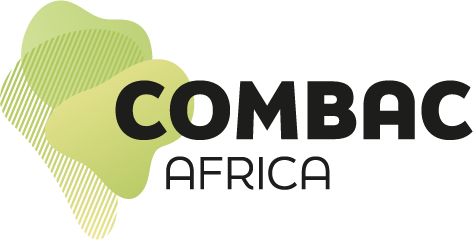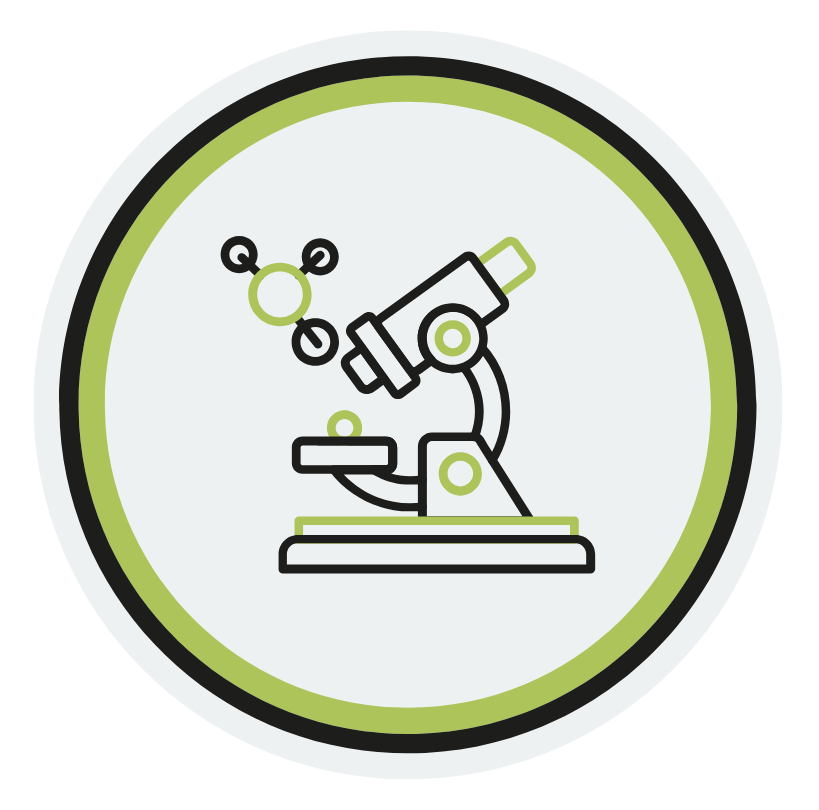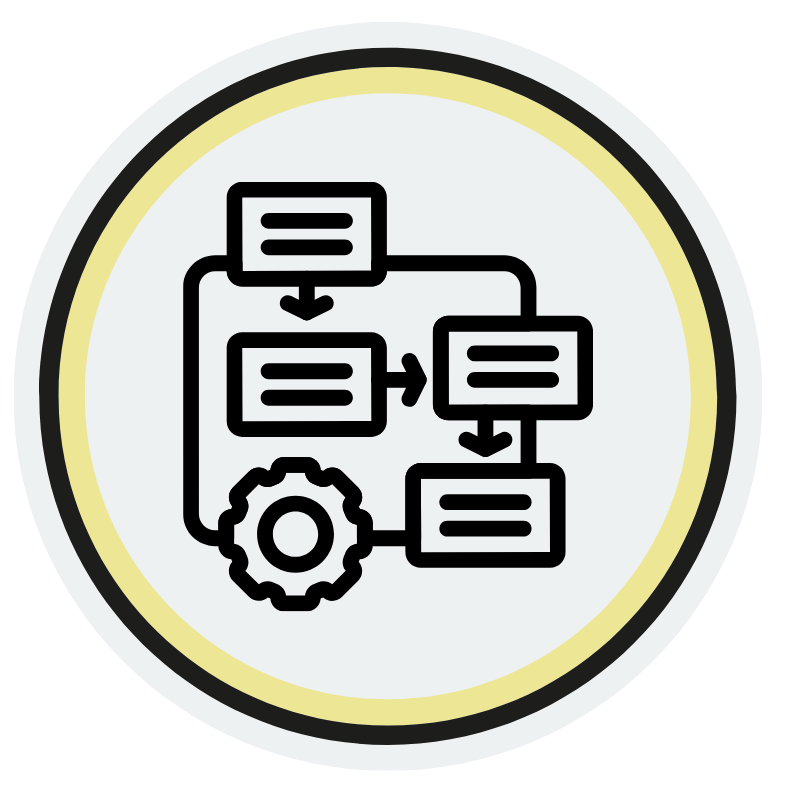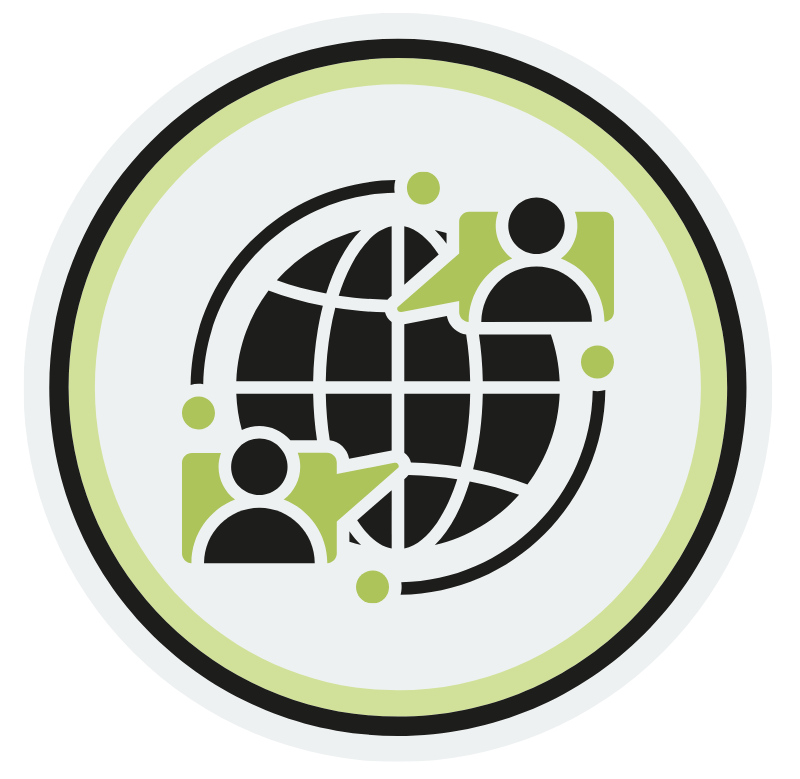
Activities
The ComBac-Africa consortium aims to improve outcomes for patients with severe infections caused by multidrug-resistant gram-negative bacteria in Côte d’Ivoire, Guinea-Bissau, and Nigeria by establishing a needs-adapted diagnostic and antimicrobial stewardship programme that provides equitable access to novel, often life-saving, antibiotics for targeted treatment.
The work of the consortium is structured in eight main areas of activity, which form the following key work packages of the project:
WP 1 Scientific project leadership
WP 2 Establish diagnostics and data capture
WP 3 Generation of real-life data on diagnostics and clinical epidemiology
WP 4 Investigating bacteria reservoirs and dissemination dynamics within a One Health paradigm
WP 5 Development of tailored and setting-specific AMS algorithms
WP 6 Implementation of diagnosis-treatment algorithms for an improved management of sepsis and severe infections
WP 7 Improved access to relevant antibiotics
WP 8 Project management, dissemination and translation of results
WP 1 - Scientific project leadership
Lead: Prof Aaron O. Aboderin (OAU) and Prof Adebayo Shittu (OAU)
WP1 will provide scientific leadership from the African continent in close collaboration with the European project coordinator. Led by OAU, this WP will guide scientific governance and oversight, maintain effective communication and coordination with the project funder, and ensure robust quality assurance and risk management throughout the project.
Partners involved: USAAR, CEMTROD, IPIAGET, MSP, JOSTUM, IPCI, LINQ, GARDP AFRICA, GARDP, Swiss TPH, CSRS
WP 2 - Establish diagnostics and data capture
Lead: Prof Kalpy Julien Coulibaly (IPCI)
Led by IPCI, WP2 is dedicated to strengthening diagnostic capacity and preparing all participating institutions for ComBac-Africa’s clinical study. Our team will begin by carefully reviewing existing laboratory infrastructure and diagnostic tools to identify where improvements are needed. Based on these findings, standardised procedures will be developed for sample collection, microbiological testing, sequencing, and bioinformatics. Additionally, the team will ensure that clinical, laboratory, and patient outcome data are collected in a consistent and reliable way across all partner institutions. Through hands-on training, practical workshops, and continuous quality checks, WP2 will establish dependable diagnostic practices, harmonised data collection, and full readiness for the launch of the clinical trial.
Partners involved: USAAR, OAU, CEMTROD, IPIAGET, MSP, JOSTUM, Swiss TPH, CSRS
WP 3 - Generation of real-life data on diagnostics and clinical epidemiology
Lead: Dr Bashirat A. Olanipekun (CEMTROD)
This WP will assess how antibiotics are used in hospitals, identify which bacteria are responsible for severe infections, and evaluate how these issues affect patient care in clinical trial facilities. Led by CEMTROD, our team will carry out surveys with healthcare professionals to better understand their views on antibiotic use and prescribing practices. At the same time, we will identify multidrug-resistant gram-negative bacteria in patients with serious infections through laboratory testing, while systematically gathering information on treatments, recovery, and hospital stays. All of this data will be brought together in a central database to provide an overview of the challenges facing healthcare systems. By generating this information, WP3 will help shape more effective treatment strategies across all partner countries.
Partners involved: USAAR, OAU, IPIAGET, MSP, JOSTUM, IPCI, Swiss TPH, CSRS
WP 4 - Investigating bacteria reservoirs and dissemination dynamics within a One Health paradigm
Lead: Dr Emmanuel Ngbede (JOSTUM) and Dr Pierre Schneeberger (SwissTPH)
WP4 will investigate how drug-resistant bacteria circulate between humans, animals, and the environment following a One Health approach. Under the leadership of JOSTUM, our team will collect samples from hospitals, communities, and animal-related settings in partner countries to identify resistant bacteria and understand how they persist and spread. Through whole-genome and metagenomic sequencing, our team will gain detailed insights into resistance mechanisms, genetic relatedness, and transmission routes of critical pathogens, and ultimately integrate all findings in a comparative framework. In addition, the team will strengthen local expertise in sequencing and bioinformatics through training and knowledge exchange. Thus, WP4 will help generate critical evidence on sources of infection, transmission pathways, and potential intervention points to help curb the spread of multidrug-resistant pathogens.
Partners involved: USAAR, OAU CEMTROD, IPIAGET, MSP, IPCI, Swiss TPH, CSRS
WP 5 - Development of tailored and setting-specific AMS algorithms
Lead: Prof Aladje Baldé (IPIAGET)
This WP will focus on improving how multidrug-resistant gram-negative bacterial infections are diagnosed and treated. Led by IPIAGET, our team will develop practical diagnosis-treatment algorithms based on local clinical and laboratory data to support faster, more accurate treatment decisions and the responsible use of new antibiotics. These tools will be embedded into antimicrobial stewardship (AMS) programmes that link hospital laboratories more closely with clinical wards, ensuring that test results quickly inform patient care. To strengthen long-term capacity, WP5 will also provide regular training for clinical and laboratory staff, equipping them to make informed prescribing decisions, strengthen infection prevention, and respond effectively to potential outbreaks. Together, these efforts will help healthcare teams manage drug-resistant infections more efficiently and sustainably.
Partners involved: USAAR, OAU, CEMTROD, MSP, JOSTUM, IPCI, GARDP, Swiss TPH, CSRS
WP 6 - Implementation of diagnosis-treatment algorithms for an improved management of sepsis and severe infections
Lead: Prof Benjamin Koudou Guibehi (CSRS)
Led by CSRS, WP6 will design, carry out, and evaluate a clinical study to see how new antibiotics and tailored clinical decision-making tools can improve the treatment of multidrug-resistant gram-negative bacterial infections. Building on the groundwork of earlier work packages, our team will put into practice the diagnosis-treatment algorithms and antimicrobial stewardship activities developed in WP5. Over a 12-month period, these tools will be introduced into routine care at several hospitals, with close monitoring of patient treatments and outcomes. By comparing results before and after the study, WP6 will generate robust evidence on the benefits of structured antimicrobial stewardship and access to novel therapies. All results will then be thoroughly evaluated and shared to help strengthen clinical practice across all partner countries.
Partners involved: USAAR, OAU, CEMTROD, IPIAGET, MSP, IPCI
WP 7 - Improved access to relevant antibiotics
Lead: Dr Jennifer Cohn (GARDP)
WP7 will focus on improving access to effective antibiotics by strengthening national systems for procurement and supply across partner countries. Under the leadership of GARDP, our team will work closely with national stakeholders to develop a unified list of essential antibiotics for treating multidrug-resistant gram-negative bacterial infections. To ensure these antibiotics are available and affordable, WP7 will collect market data to improve transparency, guide long-term planning, and explore pooled purchasing strategies that reduce costs and secure supply. Additionally, the team will support licensing, technology transfer, and regulatory processes to expand the availability of quality-assured antibiotics, while tailored access plans will help introduce them responsibly into healthcare systems.
Partners involved: OAU, CEMTROD, IPIAGET, MSP, JOSTUM, IPCI, GARDP AFRICA, CSRS
WP 8 - Project management, dissemination and translation of results
Lead: Prof Sören Becker (USAAR)
WP8, led by USAAR and supported by LINQ, will ensure efficient management infrastructures throughout the entire ComBac-Africa project. Our team will provide comprehensive managerial support to all partners and maintain open communication between the consortium and the EDCTP to maximise the efficiency and effectiveness of project activities. In addition, targeted dissemination, communication, and exploitation measures guided by LINQ will ensure wide visibility of project outputs among relevant stakeholders and help maximise the project’s impact.
Partners involved: USAAR, OAU, CEMTROD, IPIAGET, MSP, JOSTUM, IPCI, LINQ, GARDP AFRICA, GARDP, Swiss TPH, CSRS








